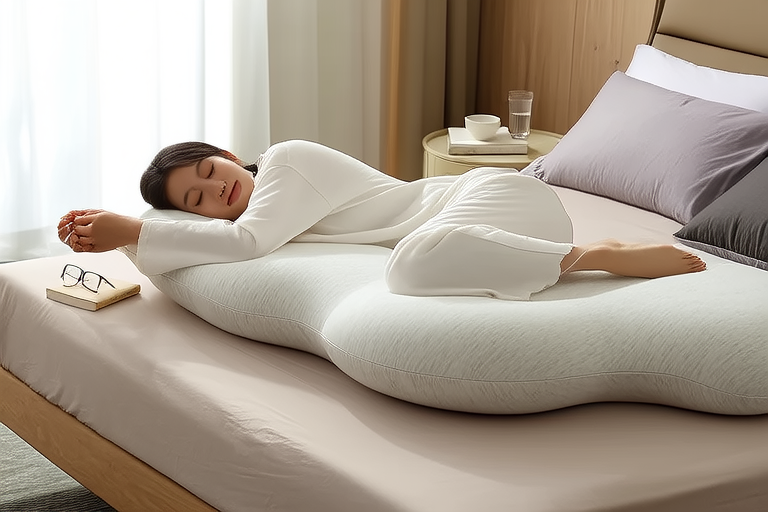Unlocking the Secrets to Better Sleep: Your Ultimate Guide to Sleep Health
Introduction: Why Sleep Matters
Sleep is one of the most fundamental pillars of health, yet it is often overlooked in our fast-paced world. While diet and exercise are frequently discussed as key components of wellness, sleep plays an equally critical role in maintaining physical, mental, and emotional well-being. Quality sleep allows the body to repair itself, supports cognitive function, and regulates mood. Unfortunately, many people struggle with sleep-related issues, ranging from difficulty falling asleep to waking up feeling unrested. This guide aims to explore the importance of sleep, identify common disruptors, and provide actionable strategies for achieving better sleep health.
The Importance of Sleep for Overall Health
Sleep is not merely a period of rest; it is a dynamic process during which the body performs essential functions that sustain life. During sleep, the brain consolidates memories, processes emotions, and clears out toxins that accumulate throughout the day. Simultaneously, the body repairs tissues, balances hormones, and strengthens the immune system. Chronic sleep deprivation has been linked to a host of health problems, including obesity, diabetes, cardiovascular disease, and mental health disorders such as anxiety and depression.
Research shows that adults need between seven and nine hours of sleep per night to function optimally. However, the quality of sleep is just as important as the quantity. Deep, restorative sleep cycles are necessary for reaping the full benefits of rest. When these cycles are disrupted, even if you spend enough time in bed, you may still wake up feeling fatigued and unrefreshed.
Common Factors That Disrupt Sleep
Understanding what interferes with sleep is the first step toward improving it. Several factors can disrupt your ability to fall asleep, stay asleep, or achieve restorative rest:
- Stress and Anxiety: Mental stress is one of the leading causes of sleep disturbances. Racing thoughts, worry, and tension can make it difficult to relax and drift off.
- Irregular Sleep Schedule: Inconsistent bedtimes and wake times confuse the body’s internal clock, making it harder to establish a natural sleep rhythm.
- Poor Sleep Environment: A bedroom that is too noisy, bright, or uncomfortable can interfere with your ability to sleep soundly.
- Screen Time Before Bed: The blue light emitted by phones, tablets, and computers suppresses melatonin production, the hormone responsible for regulating sleep.
- Caffeine and Alcohol Consumption: Both substances can disrupt sleep patterns. Caffeine acts as a stimulant, while alcohol may initially induce drowsiness but often leads to fragmented sleep later in the night.
- Medical Conditions: Issues like sleep apnea, restless leg syndrome, and chronic pain can significantly impact sleep quality.
Identifying and addressing these disruptors is crucial for creating an environment conducive to restful sleep.
Practical Tips for Improving Sleep Quality
Achieving better sleep doesn’t have to be complicated. Small, consistent changes can yield significant improvements over time. Here are some practical tips to enhance your sleep quality:
Establish a Consistent Routine
Going to bed and waking up at the same time every day—even on weekends—helps regulate your circadian rhythm. This consistency trains your body to anticipate sleep, making it easier to fall asleep and wake up naturally.
Create a Relaxing Bedtime Ritual
Engage in calming activities before bed, such as reading, meditating, or taking a warm bath. These practices signal to your brain that it’s time to wind down and prepare for rest.
Optimize Your Sleep Environment
Your bedroom should be a sanctuary for sleep. Keep it cool, dark, and quiet. Consider using blackout curtains, earplugs, or a white noise machine to minimize disruptions. Investing in a comfortable mattress and pillows can also make a noticeable difference.
Limit Screen Time Before Bed
Avoid screens at least an hour before bedtime. If you must use electronic devices, enable night mode or wear blue-light-blocking glasses to reduce exposure to disruptive wavelengths.
Watch What You Eat and Drink
Avoid heavy meals, caffeine, and alcohol close to bedtime. Instead, opt for a light snack if you’re hungry, such as a banana or a handful of nuts, which contain nutrients that promote relaxation.
Get Regular Exercise
Physical activity has been shown to improve sleep quality and duration. However, try to finish vigorous workouts at least three hours before bed to allow your body time to cool down.
The Role of Sleep Hygiene
Sleep hygiene refers to habits and practices that promote consistent, uninterrupted sleep. It encompasses everything from your daily routines to your nighttime rituals. Good sleep hygiene involves creating a lifestyle that prioritizes rest and eliminates behaviors that hinder it. Some key principles of sleep hygiene include:
- Maintaining a regular sleep schedule.
- Avoiding naps late in the afternoon, as they can interfere with nighttime sleep.
- Using your bed only for sleep and intimacy, not for work or entertainment.
- Managing stress through mindfulness techniques or journaling.
- Exposing yourself to natural light during the day to reinforce your body’s sleep-wake cycle.
By adopting these habits, you can create a foundation for healthier, more restorative sleep.
Conclusion: Actionable Insights for Better Sleep
Improving your sleep health is a journey that requires awareness, commitment, and small, sustainable changes. Start by recognizing the importance of sleep and how it impacts every aspect of your well-being. Identify the factors that disrupt your rest and take proactive steps to address them. Establish a consistent routine, optimize your sleep environment, and practice good sleep hygiene to set yourself up for success.
Remember, better sleep is within reach. By prioritizing rest and making intentional choices, you can unlock the secrets to improved sleep health and enjoy the countless benefits that come with it. Sweet dreams!










